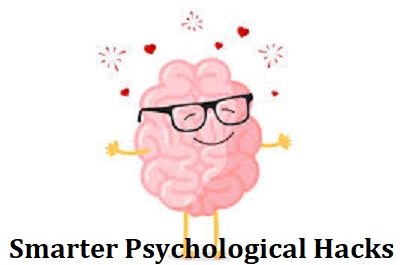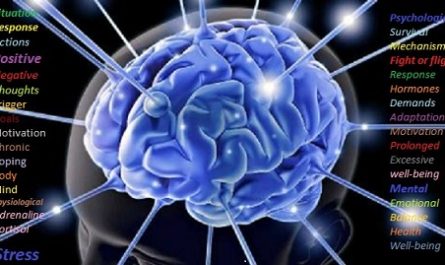Pain is an unpleasant sensory and emotional experience that is typically associated with tissue damage or the potential for tissue damage. It is a complex and subjective phenomenon that can vary in intensity, duration, and location. Pain can be acute, meaning it is short-lived and usually resolves as the underlying cause heals, or chronic, meaning it persists for an extended period of time, often without an identifiable cause or even after the underlying condition has been treated.
Pain is processed by the nervous system, which sends signals from the site of the injury or damage to the brain, where it is perceived as pain. The experience of pain can be influenced by a range of factors, including genetics, past experiences, emotional state, and environmental factors.
Whether you are dealing with acute pain that is the result of an injury or illness, or chronic pain that persists for an extended period of time, it is essential to seek appropriate medical care. Pain can be an indicator of an underlying health issue, and ignoring it could lead to further complications.
Types of pain
There are many different types of pain, including
- Nociceptive pain
The most common type of pain is nociceptive pain, which is caused by tissue damage or injury. This type of pain can be acute or chronic and is typically described as a dull ache, sharp pain, or throbbing sensation.
- Neuropathic pain
Neuropathic pain is another type of pain that is caused by damage or dysfunction of the nerves. This type of pain can be caused by conditions such as diabetes, multiple sclerosis, or trauma to the nerves. Neuropathic pain is typically described as a burning or tingling sensation and can be difficult to manage.
- Psychogenic pain
Psychogenic pain is a type of pain that is related to emotional or psychological factors. This type of pain can be caused by conditions such as depression, anxiety, or stress. Psychogenic pain can be difficult to diagnose and treat, as it does not have a clear physical cause.
Causes of Pain:
Pain can be caused by a range of factors, including injury, illness, or psychological factors. Acute pain is typically caused by injury, such as a sprained ankle or a cut. Chronic pain, on the other hand, can be caused by a range of conditions, including arthritis, back pain, or neuropathic pain.
In addition to physical causes, pain can also be caused by psychological factors such as stress or anxiety. Psychogenic pain can be difficult to diagnose and treat, as it does not have a clear physical cause.
Treatment
Treatment options for pain vary depending on the underlying cause and severity of the pain. In many cases, over-the-counter pain relievers such as acetaminophen or ibuprofen can be effective in managing pain. However, for more severe or chronic pain, prescription medications, physical therapy, psychological interventions, or even surgery may be necessary.
In addition to medical treatment, lifestyle changes can also be helpful in managing pain. Exercise, for example, has been shown to be effective in reducing pain, especially for individuals with chronic pain. Relaxation techniques, such as meditation or deep breathing, can also help to reduce stress and manage pain.
Pain and mental health
Pain is a complex phenomenon that is not just physical but can also have an impact on an individual’s mental health. Pain and mental health are closely linked, as chronic pain can lead to feelings of depression, anxiety, and stress. When an individual is in pain, they may feel frustrated, angry, and helpless, which can lead to negative thoughts and emotions. Chronic pain can also lead to social isolation, as individuals may avoid social activities due to their pain.
Research has shown that individuals with chronic pain are at a higher risk of developing mental health issues such as depression and anxiety. In fact, studies have shown that individuals with chronic pain are three times more likely to experience depression than individuals without chronic pain.
Strategies for Managing Pain-Related Mental Health Issues:
Managing pain-related mental health issues requires a multidisciplinary approach that addresses both physical and mental health. Here are some strategies that can be helpful in managing pain-related mental health issues:
Seek Medical Attention:
If you are experiencing pain, it is essential to seek medical attention, as it can be an indicator of an underlying health issue. Your doctor can help to diagnose and treat the underlying cause of your pain, which can help to reduce your symptoms and improve your mental health.
Practice Mindfulness:
Mindfulness is a technique that involves focusing on the present moment without judgment. Mindfulness can help individuals to reduce their stress and anxiety levels, which can help to manage pain-related mental health issues. Mindfulness techniques such as deep breathing, meditation, and yoga can be helpful in managing pain-related mental health issues.
Cognitive-Behavioral Therapy:
Cognitive-behavioral therapy is a type of therapy that focuses on identifying and changing negative thought patterns. This type of therapy can be helpful in managing pain-related mental health issues by helping individuals to identify and change their negative thoughts and emotions.
Exercise:
Exercise has been shown to be effective in reducing pain and improving mental health. Exercise can help to reduce stress and anxiety levels, improve mood, and increase endorphin levels, which can help to manage pain-related mental health issues.
Social Support:
Social support is essential in managing pain-related mental health issues. Talking to friends and family members about your pain can be helpful in reducing stress and improving mood. Joining support groups or seeking professional counseling can also be helpful in managing pain-related mental health issues.
Conclusion:
In conclusion, pain and mental health are closely linked, as chronic pain can lead to feelings of depression, anxiety, and stress. Managing pain-related mental health issues requires a multidisciplinary approach that addresses both physical and mental health. Seeking medical attention, practicing mindfulness, cognitive-behavioral therapy, exercise, and social support can all be helpful in managing pain-related mental health issues. If you are experiencing pain and are concerned about your mental health, it is essential to seek medical attention and discuss your concerns with your doctor.




